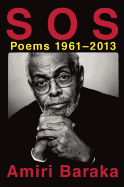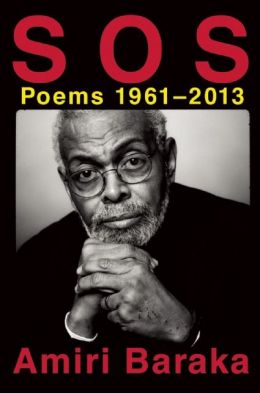 With his controversial 1964 play Dutchman (written under his given name, LeRoi Jones), Amiri Baraka made a defiant entry into the rapidly shifting mid-century United States literary scene. At the time, this racially charged drama--about a young black man badgered and cajoled into rage by a flirtatious, violent white woman sharing his subway car--announced a new and fearless African-American voice. Shortly after the play won an Obie Award, Baraka shed his "slave name" and embraced the highly charged politics of Black Nationalism, provoking the ire of moderate blacks and whites alike. However, Baraka's writing career began with poetry, and up until his death in 2014, he never stopped writing verse.
With his controversial 1964 play Dutchman (written under his given name, LeRoi Jones), Amiri Baraka made a defiant entry into the rapidly shifting mid-century United States literary scene. At the time, this racially charged drama--about a young black man badgered and cajoled into rage by a flirtatious, violent white woman sharing his subway car--announced a new and fearless African-American voice. Shortly after the play won an Obie Award, Baraka shed his "slave name" and embraced the highly charged politics of Black Nationalism, provoking the ire of moderate blacks and whites alike. However, Baraka's writing career began with poetry, and up until his death in 2014, he never stopped writing verse.
S O S: Poems, 1965-2013 provides a comprehensive compendium of the best of Baraka's 50 years of poetry. Selected by Los Angeles poet, broadcaster and anthologist Paul Vangelisti, these poems cover the ebbs and flows of the modern African-American struggle for freedom and identity--but always in the lively, street-savvy, music-centric, angry voice that Baraka shouted on the doorsteps of academic critics, Harlem organizers and Upper West Side intellectuals.
Forerunners of rap and hip-hop, his poems toasted the earthy heart of the black man's experience. Listen to these lines in "To a Publisher... Cut-out," published in the early '60s:
"But who am I to love anybody? I ride the 14th St. bus
every day... reading Hui neng/ Raymond Chandler/ Olson…
I have slept with almost every mediocre colored woman
On 23rd St... At any rate talked a good match. [And]
I addressed several perfumed notes to Uncle Don
& stuffed them into the radio. In the notes,
Of course, crude assignations, off color suggestions,
Diagrams of new methods for pederasts, lewd poems
That rime."
Or these concluding lines to "Monk's World" from the more recent 1995 collection Funk Lore, where Baraka was still singing of the power and beauty of black culture:
"Oh, man! Monk was digging Trane now
w/o a chaser he drank himself
in. & Trane reported from
the 6th or 7th planet deep in
the Theloniuscape.
Where fire engines screamed the blues
& night had a shiny mouth
& scatted flying things."
There may be no better time than now to experience the lyrical, funny, dynamic, and provocative poetry of Amiri Baraka--a black man who even in his mellowing old age could brandish his political voice in the recent poem "Mississippi Goddamn!" (referencing Nina Simone's 1964 song of the same name) to challenge black support of Hillary Clinton:
"I saw Hillary Clinton in Mississippi with two giant coons
One on each side, like Mandrake the Magician
With her own two Lothars...
Is this the meaning of integration or the effects of segregation?
That we would rather guard capitalism's whore than struggle
For ourselves and with ourselves to achieve something more."
S O S: Poems, 1965-2013 is the perfect place to hear the voice that influenced, if not defined, decades of black political struggle when few were listening--and even fewer were doing anything. Baraka did something. Man, he did plenty. --Bruce Jacobs, founding partner, Watermark Books & Cafe, Wichita, Kan.
Shelf Talker: This well-selected compendium of 50 years of Amiri Baraka's poetry captures the consistently provocative but lyrical voice of an unflinching advocate of black independence and culture.
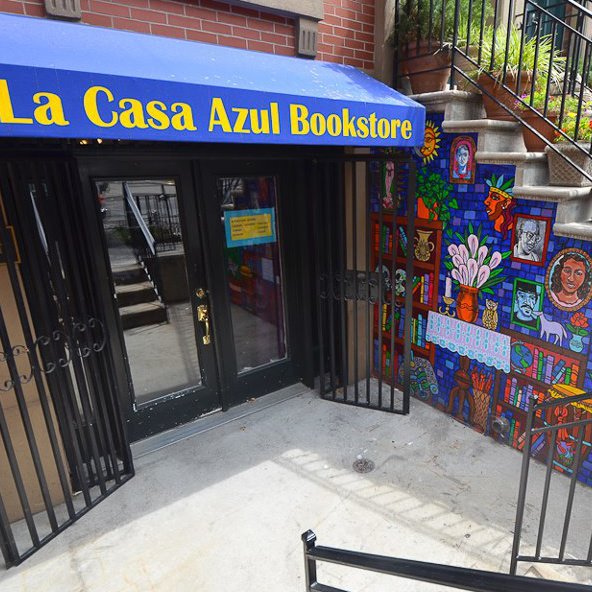 La Casa Azul Bookstore in New York City has won $150,000 from JPMorgan Chase's Mission Main Street Grant program, which split $3 million among 20 small businesses nationwide. The East Harlem bookstore was selected by a panel of business experts for its promising growth potential, management strength and positive community influence. Winners will also receive a trip to Google headquarters in California for a marketing workshop, a free Chromebook laptop and a $2,000 coupon for a Google Consumer Surveys market research survey. "The Mission Main Street Grant provides us with the opportunity to expand on the programs and book selection we offer students, families, writers and readers," said Aurora Anaya-Cerda, the bookstore's owner. La Casa Azul specializes in Latino books and cultural programs.
La Casa Azul Bookstore in New York City has won $150,000 from JPMorgan Chase's Mission Main Street Grant program, which split $3 million among 20 small businesses nationwide. The East Harlem bookstore was selected by a panel of business experts for its promising growth potential, management strength and positive community influence. Winners will also receive a trip to Google headquarters in California for a marketing workshop, a free Chromebook laptop and a $2,000 coupon for a Google Consumer Surveys market research survey. "The Mission Main Street Grant provides us with the opportunity to expand on the programs and book selection we offer students, families, writers and readers," said Aurora Anaya-Cerda, the bookstore's owner. La Casa Azul specializes in Latino books and cultural programs.









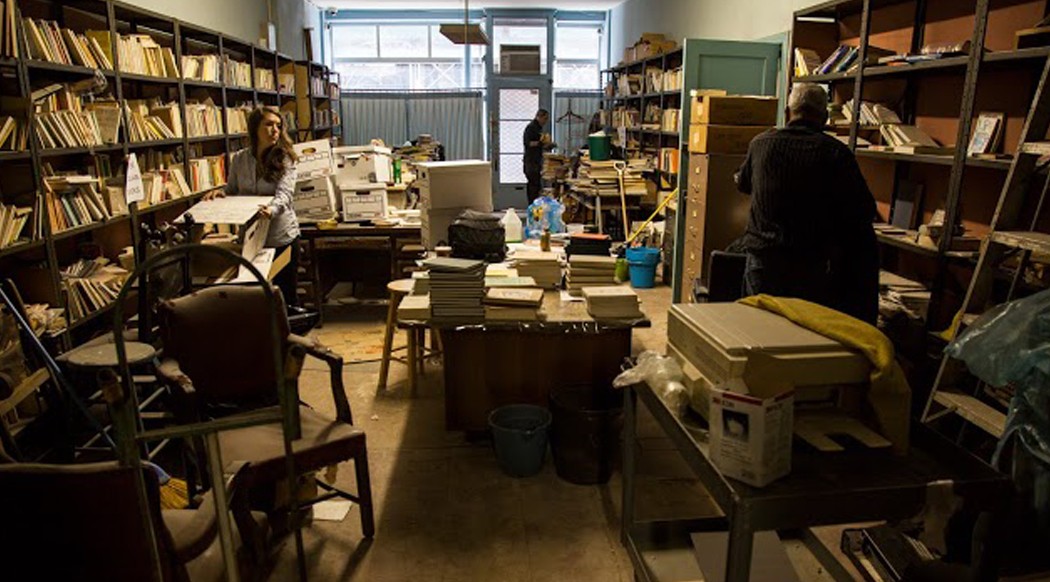 At the same time, Centro Primo Levi's CPL Editions, the e-book and POD publisher dedicated to the history of Italian Jews, run in association with
At the same time, Centro Primo Levi's CPL Editions, the e-book and POD publisher dedicated to the history of Italian Jews, run in association with  Egmont Publishing, which announced last October that it
Egmont Publishing, which announced last October that it 

 From My Shelf Books & Gifts
From My Shelf Books & Gifts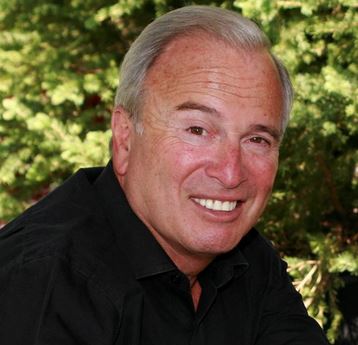




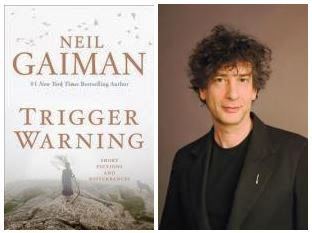 Congratulations to
Congratulations to  BookPeople of Moscow
BookPeople of Moscow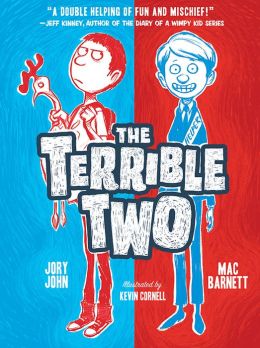 In early December, Jason Wells of Abrams Children's Publishing called me with a crazy idea: Could I put together 22 school visits over one week in January to launch The Terrible Two by Mac Barnett and Jory John? Our biggest concerns at
In early December, Jason Wells of Abrams Children's Publishing called me with a crazy idea: Could I put together 22 school visits over one week in January to launch The Terrible Two by Mac Barnett and Jory John? Our biggest concerns at 
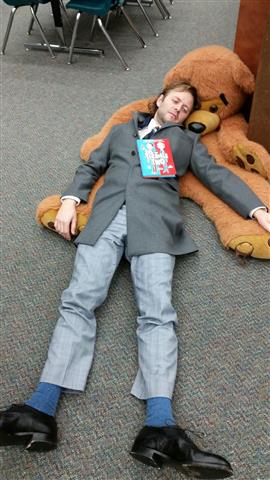
 Phenomenal: A Hesitant Adventurer's Search for Wonder in the Natural World
Phenomenal: A Hesitant Adventurer's Search for Wonder in the Natural World With his controversial 1964 play Dutchman (written under his given name, LeRoi Jones), Amiri Baraka made a defiant entry into the rapidly shifting mid-century United States literary scene. At the time, this racially charged drama--about a young black man badgered and cajoled into rage by a flirtatious, violent white woman sharing his subway car--announced a new and fearless African-American voice. Shortly after the play won an Obie Award, Baraka shed his "slave name" and embraced the highly charged politics of Black Nationalism, provoking the ire of moderate blacks and whites alike. However, Baraka's writing career began with poetry, and up until his death in 2014, he never stopped writing verse.
With his controversial 1964 play Dutchman (written under his given name, LeRoi Jones), Amiri Baraka made a defiant entry into the rapidly shifting mid-century United States literary scene. At the time, this racially charged drama--about a young black man badgered and cajoled into rage by a flirtatious, violent white woman sharing his subway car--announced a new and fearless African-American voice. Shortly after the play won an Obie Award, Baraka shed his "slave name" and embraced the highly charged politics of Black Nationalism, provoking the ire of moderate blacks and whites alike. However, Baraka's writing career began with poetry, and up until his death in 2014, he never stopped writing verse.